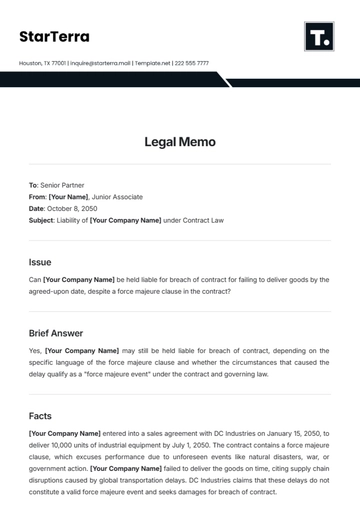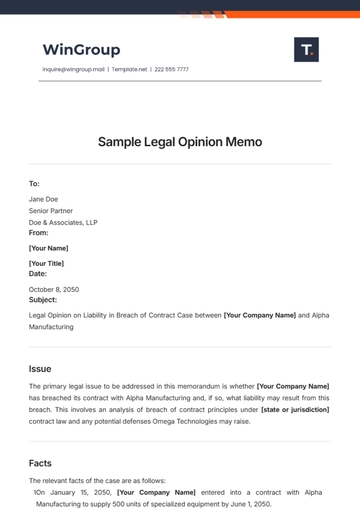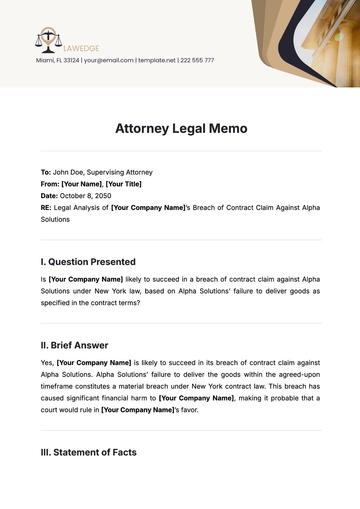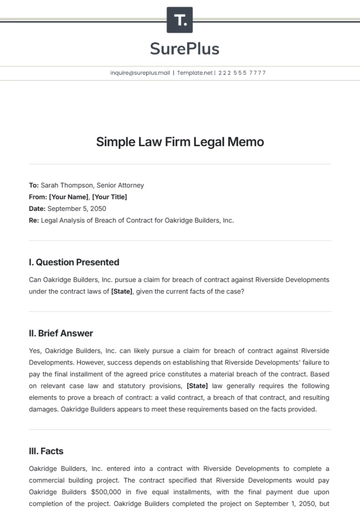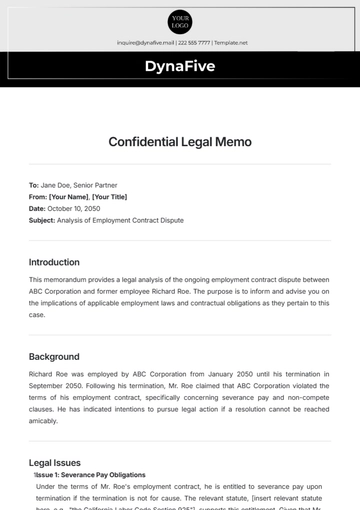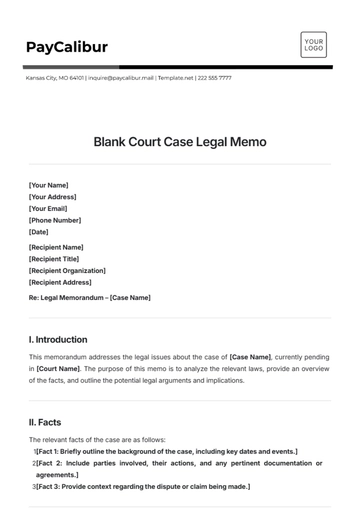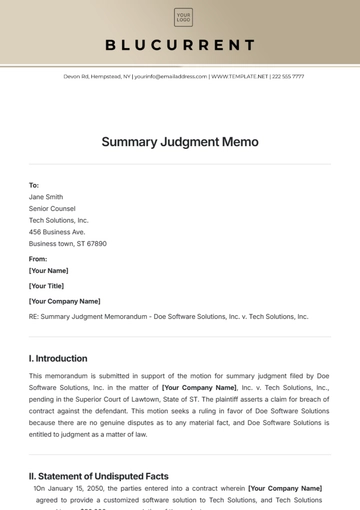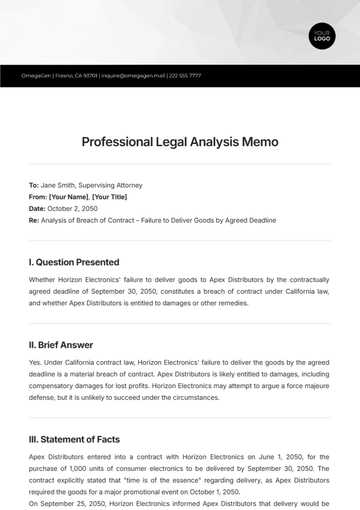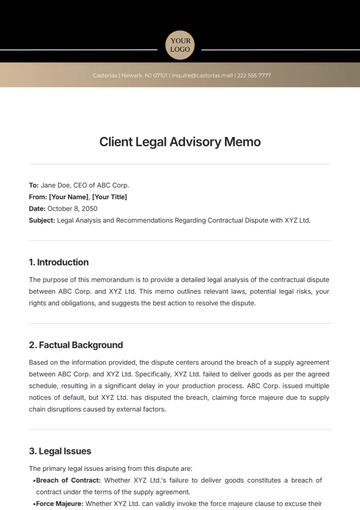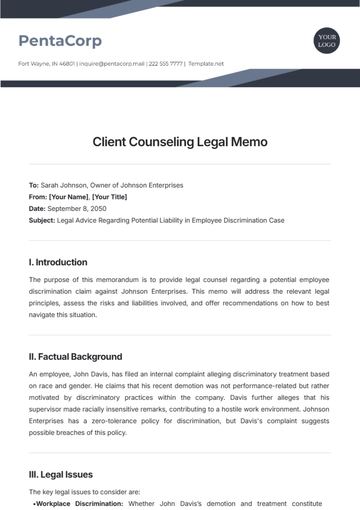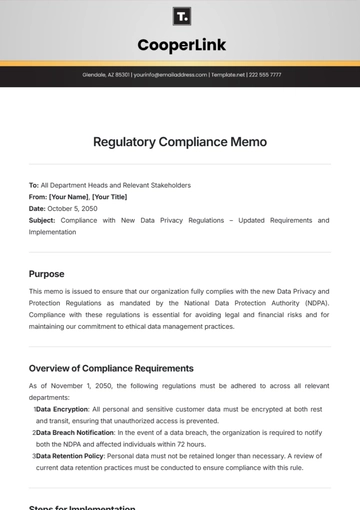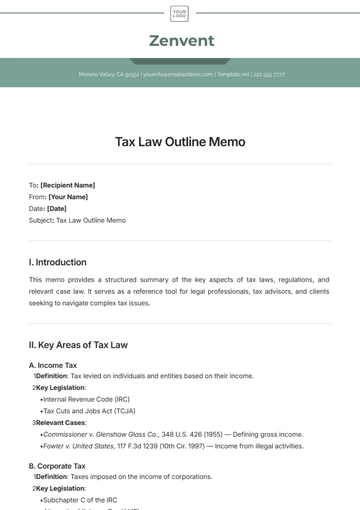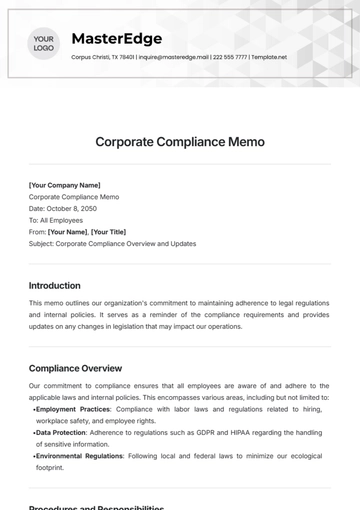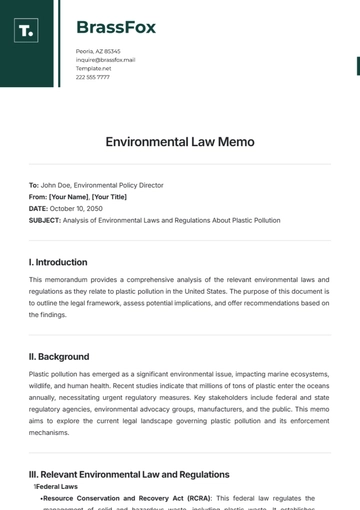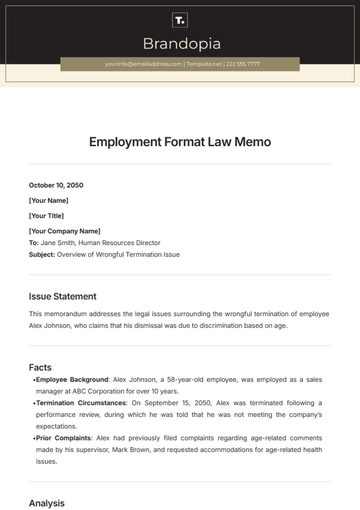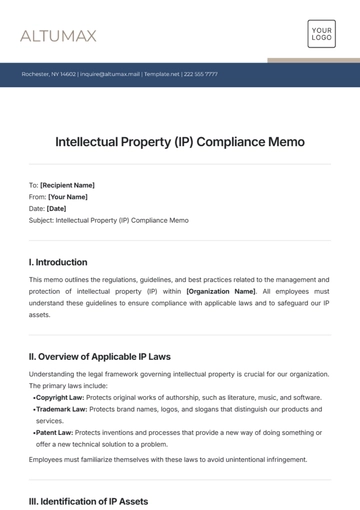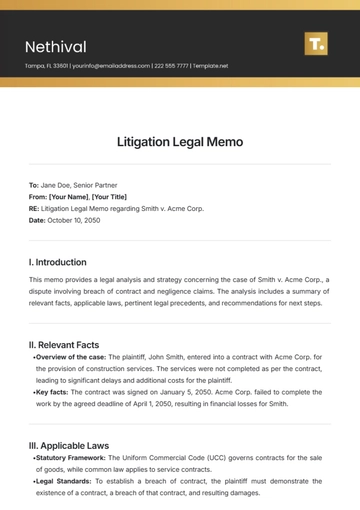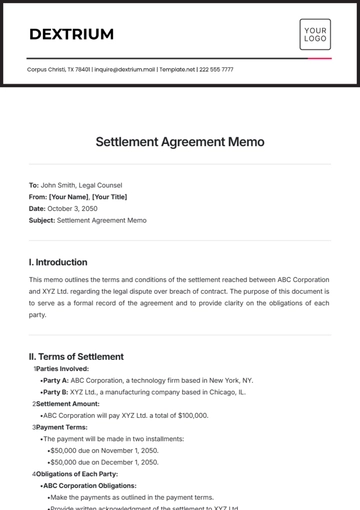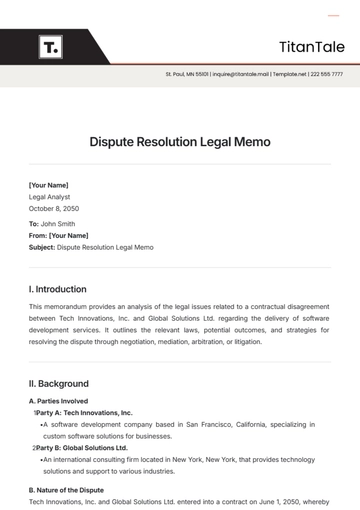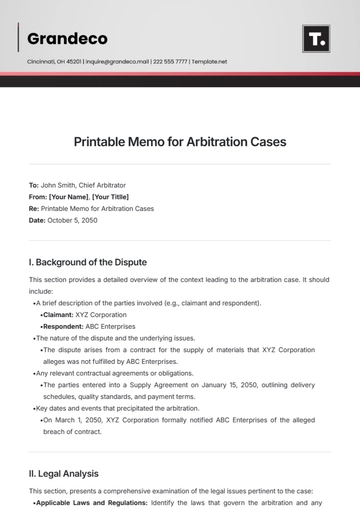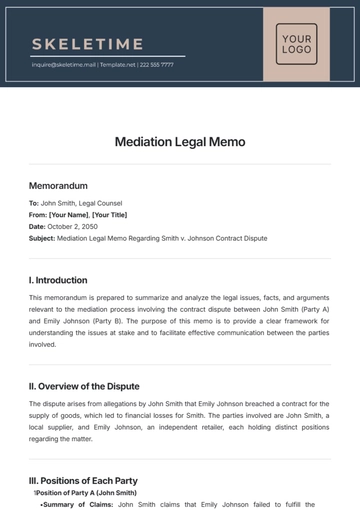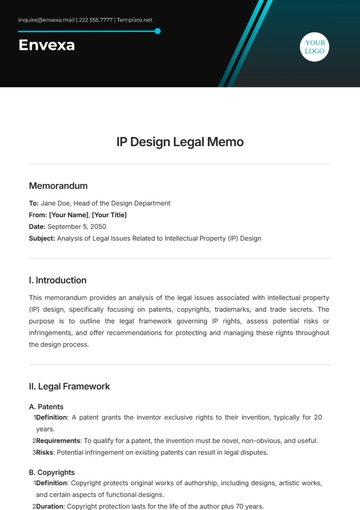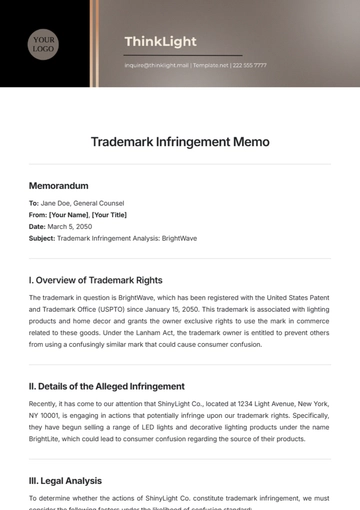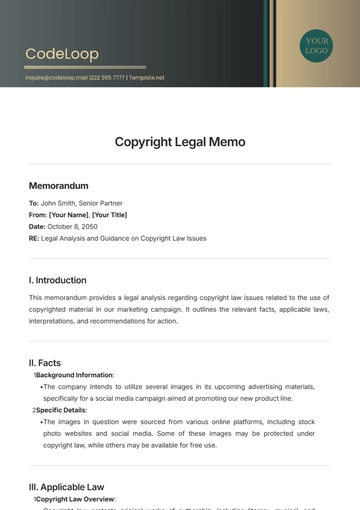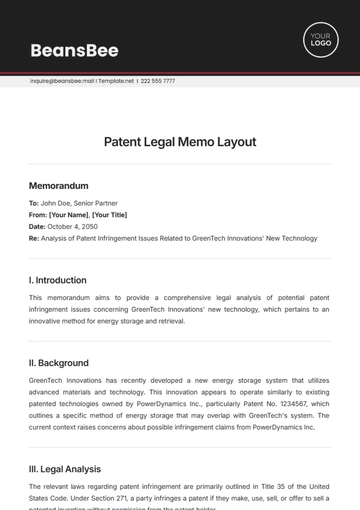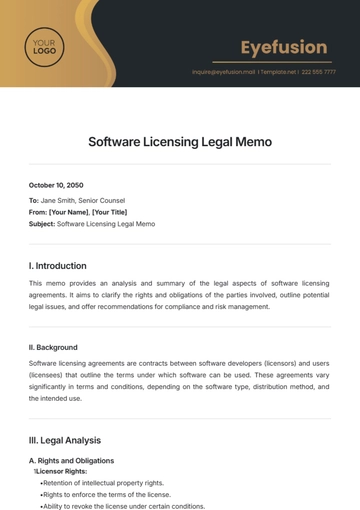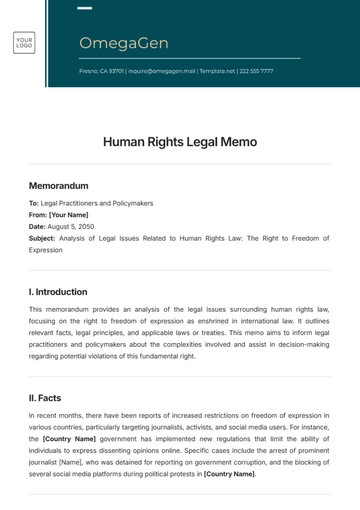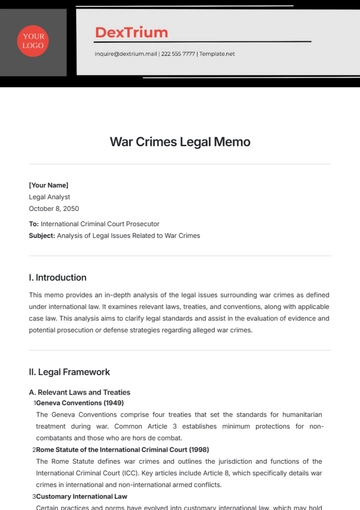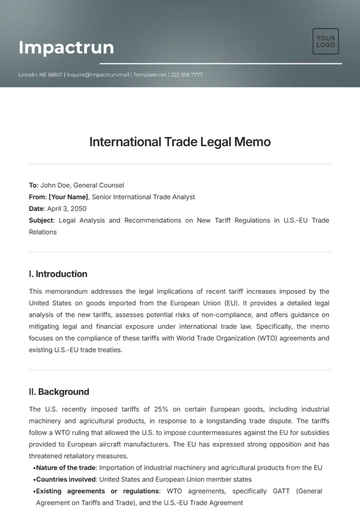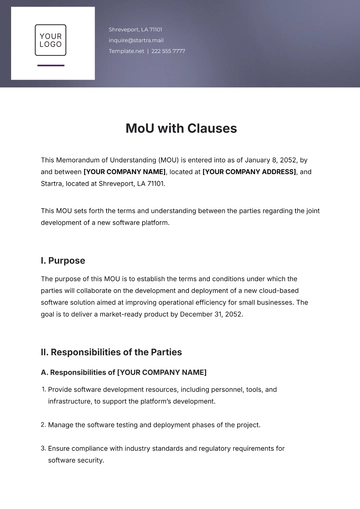Free Legal Memo
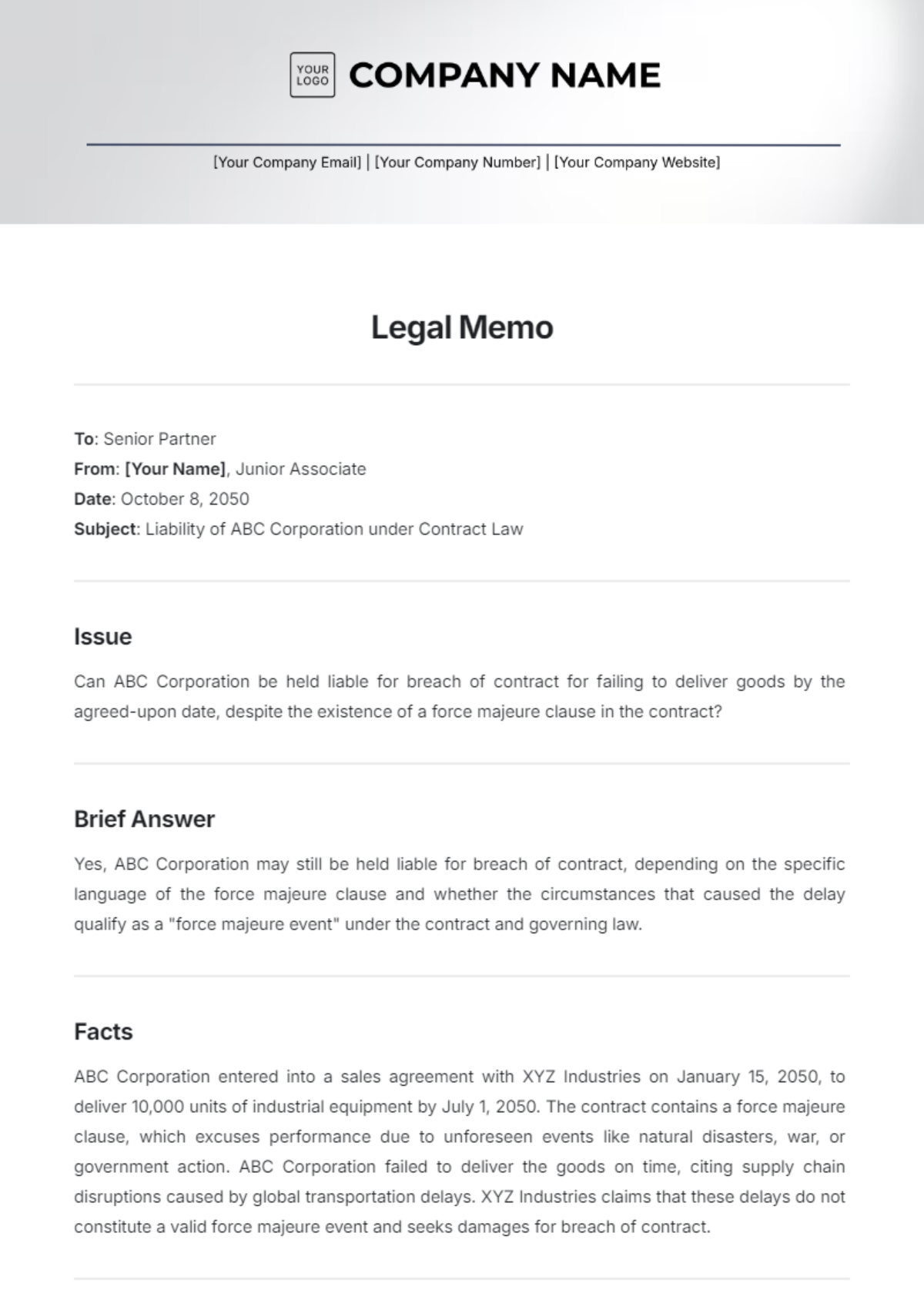
To: Senior Partner
From: [Your Name], Junior Associate
Date: October 8, 2050
Subject: Liability of [Your Company Name] under Contract Law
Issue
Can [Your Company Name] be held liable for breach of contract for failing to deliver goods by the agreed-upon date, despite a force majeure clause in the contract?
Brief Answer
Yes, [Your Company Name] may still be held liable for breach of contract, depending on the specific language of the force majeure clause and whether the circumstances that caused the delay qualify as a "force majeure event" under the contract and governing law.
Facts
[Your Company Name] entered into a sales agreement with DC Industries on January 15, 2050, to deliver 10,000 units of industrial equipment by July 1, 2050. The contract contains a force majeure clause, which excuses performance due to unforeseen events like natural disasters, war, or government action. [Your Company Name] failed to deliver the goods on time, citing supply chain disruptions caused by global transportation delays. DC Industries claims that these delays do not constitute a valid force majeure event and seeks damages for breach of contract.
Applicable Law
Under common law contract principles, a party is liable for breach of contract if they fail to fulfill their obligations unless they are excused by law or the terms of the contract. A force majeure clause can excuse non-performance if the event qualifies under the clause and makes performance impossible, rather than merely inconvenient or more costly.
Analysis
1. Interpretation of the Force Majeure Clause
The enforceability of the force majeure clause depends on its precise language. In this case, the contract specifies natural disasters, war, or government action as force majeure events, but does not explicitly mention supply chain disruptions. Courts generally construe force majeure clauses narrowly, meaning that the triggering event must fall within the specific terms outlined in the clause.
2. Qualifying Event
The global transportation delays cited by [Your Company Name] may not qualify as a force majeure event unless the clause expressly covers "supply chain disruptions" or "transportation issues." If these delays were caused by government-mandated lockdowns or restrictions, there might be an argument that such actions constitute "government action" under the clause. However, if the delays were due to economic factors or a general shortage of goods, ABC Corporation may not be excused from performance.
3. Foreseeability and Causation
Even if the force majeure clause is broad enough to cover supply chain disruptions, [Your Compay Name] must demonstrate that the delay was unforeseeable and beyond its control. Courts may consider whether the company took reasonable steps to mitigate the delays, such as finding alternative suppliers or transportation methods. If the disruptions were foreseeable when the contract was signed, the company may not be excused under the force majeure clause.
Conclusion
[Your Company Name] liability for breach of contract will depend on how narrowly the force majeure clause is interpreted and whether the transportation delays fall within the scope of the clause. If the clause does not cover such delays, or if the disruptions were foreseeable and preventable, the company may be liable for failing to deliver the goods by the agreed-upon date. Further analysis of the specific facts and contract language is recommended.
- 100% Customizable, free editor
- Access 1 Million+ Templates, photo’s & graphics
- Download or share as a template
- Click and replace photos, graphics, text, backgrounds
- Resize, crop, AI write & more
- Access advanced editor
Develop the Legal Memo Template from Template.net, a sophisticated solution for legal professionals. This editable and customizable template streamlines memo creation, ensuring precision and professionalism. Crafted for efficiency and convenience, it's seamlessly editable in our Ai Editor Tool, empowering you to tailor legal memos. Elevate and Enhance your documentation process effortlessly.
